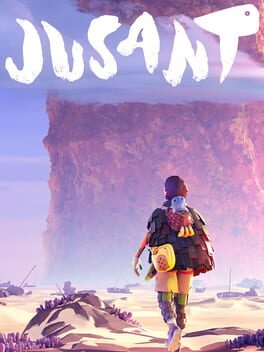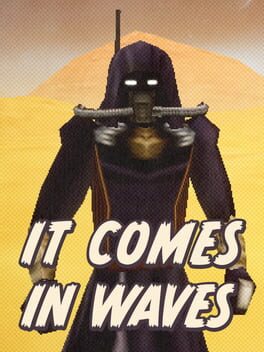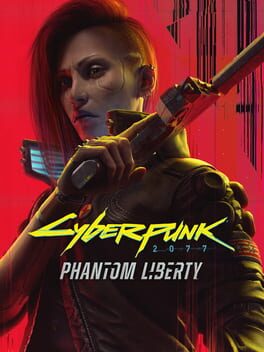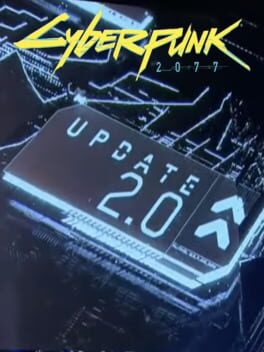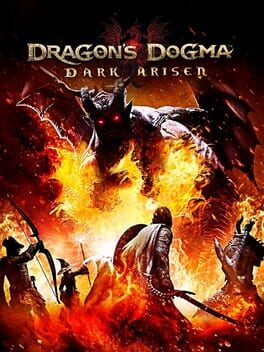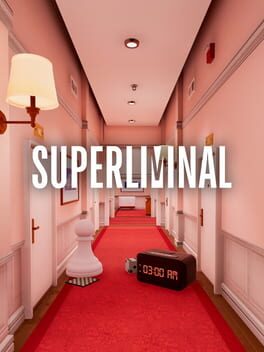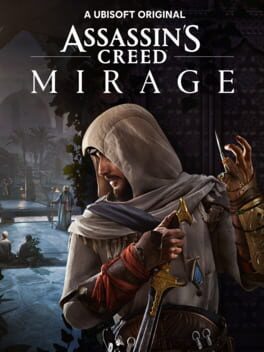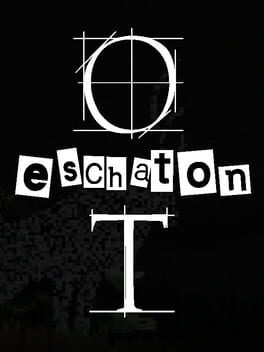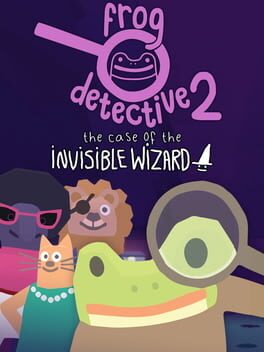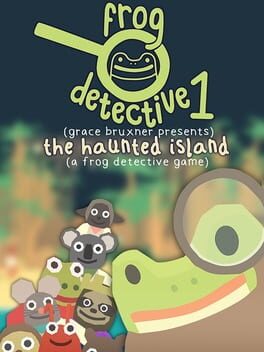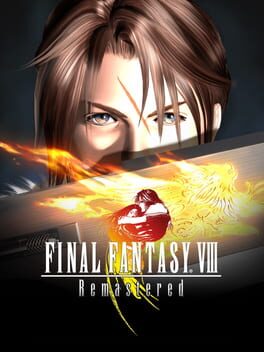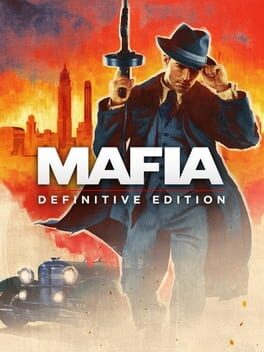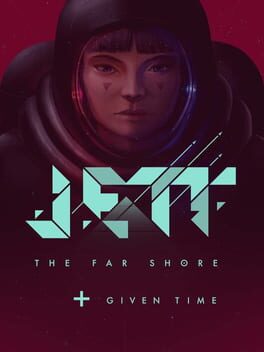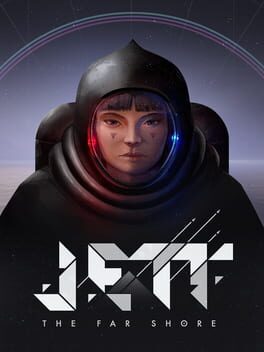DoctorEars
2023
A beautiful mountain-climbing game, Jusant stuns with it's quiet serenity and easy-to-grasp (pun well intended) mechanics for reaching for and holding onto handholds and footholds.
I loved looking at this game, every frame a beautiful array of colours and shapes - the leftovers of a seemingly long-dead society living upon a monstrous tower of stone. Exploring this place was joyful, between the small moments of sorrow found in reading the letters sent between the denizens of this forsaken place.
The game is everything it needs to be, no more and no less. It's short, the exact length of game it needed to be, and I thank it for not outstaying it's welcome like others might.
I loved looking at this game, every frame a beautiful array of colours and shapes - the leftovers of a seemingly long-dead society living upon a monstrous tower of stone. Exploring this place was joyful, between the small moments of sorrow found in reading the letters sent between the denizens of this forsaken place.
The game is everything it needs to be, no more and no less. It's short, the exact length of game it needed to be, and I thank it for not outstaying it's welcome like others might.
2023
Phantom Liberty is a phenomenal achievement, an incredibly exciting and tense story that I was overwhelming impressed by. The writing, the performances, the incredible set-pieces and varied mission design. All of it is the creatives at CD Projekt Red firing on all cylinders.
Additionally, the work that the team did on making the Gig sidequests provided by Mr. Hands into extremely compelling stories has to be applauded. Gigs in OG Cyberpunk were relatively repetitive, mostly boring affair. They were the pinnacle of what I pejoratively call "checklist content". The Gigs in Phantom Liberty however are anything but.
It's a must-play.
Additionally, the work that the team did on making the Gig sidequests provided by Mr. Hands into extremely compelling stories has to be applauded. Gigs in OG Cyberpunk were relatively repetitive, mostly boring affair. They were the pinnacle of what I pejoratively call "checklist content". The Gigs in Phantom Liberty however are anything but.
It's a must-play.
You can probably find my review of OG Cyberpunk, I liked the story stuff but found a lot about the game absolutely exhausting.
But now, Cyberpunk 2077 is one of my favourite games of all time. Easily in my top 10, an absolute blast and a must-play.
With the 2.0 Update and the release of Phantom Liberty, CDProjekt Red have done what I genuinely thought was a hard ask - give their relatively maligned game a massive turnaround into something more deserving of their lineage as a game studio. They truly managed it.
If the team that was across this update and Phantom Liberty are the ones wading deep into the waters of Unreal 5 for Cyberpunk 2, I couldn't be more excited.
But now, Cyberpunk 2077 is one of my favourite games of all time. Easily in my top 10, an absolute blast and a must-play.
With the 2.0 Update and the release of Phantom Liberty, CDProjekt Red have done what I genuinely thought was a hard ask - give their relatively maligned game a massive turnaround into something more deserving of their lineage as a game studio. They truly managed it.
If the team that was across this update and Phantom Liberty are the ones wading deep into the waters of Unreal 5 for Cyberpunk 2, I couldn't be more excited.
*Played on PS5
This game has some fascinating ideas.
I've obviously come to this late, a full ten years after original launch - partially to see what this thing is all about and if I'll be interested in the coming sequel. Spoiler alert: I am VERY interested.
I find it interesting to consider this game as the other side of the Dark Souls coin. Both Japanese developers doing something new in the fantasy RPG space, pulling inspiration from some of the other successful western RPGs of the time, including evocative asymmetric multiplayer to flesh out the world, and with a large focus on statistical depth and a deluge of items. Worlds you can sink your teeth into.
But where Dark Souls goes down the more solo route, where you are alone against the world, exploring the dark depths of Lordran and doing your best to survive - Dragon's Dogma instead tries to use asymmetric multiplayer to create a new type of party-based RPG. One where your party members are characters that other players created - and they can come to you with pre-existing knowledge about quests and monsters so you can more easily succeed with the information and items they bring you.
It's a really amazing system to engage with, and weirdly enough you do get attached to these fantasy freaks. When one of my first pawns died (they're called pawns in this world of Gransys, people without volition/free will unless they are around an Arisen such as your player character), I had this sudden feeling in my stomach as I realised I'd never see them again.
By the end of this game I was really enjoying myself, and it is extremely fun to explore the world, even more so with limited fast travelling so you're not just skipping around the place checklisting quests.
I have some issues with how quests are labelled so you often don't know how to progress, but this must be by design. Perhaps there are even more natural ways to guide the player through the world, so they don't fret about not knowing what quest to do next. Or maybe that's a me problem.
Anyway I rewatched the Dragon's Dogma 2 trailer after beating this game and realised I am actually quite excited to play it.
This game has some fascinating ideas.
I've obviously come to this late, a full ten years after original launch - partially to see what this thing is all about and if I'll be interested in the coming sequel. Spoiler alert: I am VERY interested.
I find it interesting to consider this game as the other side of the Dark Souls coin. Both Japanese developers doing something new in the fantasy RPG space, pulling inspiration from some of the other successful western RPGs of the time, including evocative asymmetric multiplayer to flesh out the world, and with a large focus on statistical depth and a deluge of items. Worlds you can sink your teeth into.
But where Dark Souls goes down the more solo route, where you are alone against the world, exploring the dark depths of Lordran and doing your best to survive - Dragon's Dogma instead tries to use asymmetric multiplayer to create a new type of party-based RPG. One where your party members are characters that other players created - and they can come to you with pre-existing knowledge about quests and monsters so you can more easily succeed with the information and items they bring you.
It's a really amazing system to engage with, and weirdly enough you do get attached to these fantasy freaks. When one of my first pawns died (they're called pawns in this world of Gransys, people without volition/free will unless they are around an Arisen such as your player character), I had this sudden feeling in my stomach as I realised I'd never see them again.
By the end of this game I was really enjoying myself, and it is extremely fun to explore the world, even more so with limited fast travelling so you're not just skipping around the place checklisting quests.
I have some issues with how quests are labelled so you often don't know how to progress, but this must be by design. Perhaps there are even more natural ways to guide the player through the world, so they don't fret about not knowing what quest to do next. Or maybe that's a me problem.
Anyway I rewatched the Dragon's Dogma 2 trailer after beating this game and realised I am actually quite excited to play it.
2019
I really liked the series of puzzles, and the ways all of the different mind-bending mechanics interacted with one another in fun ways.
What I liked less was the attempt to make this a Portal-type story, and I found the voiced dialogue pretty overwrought and annoying. I think this game could easily exist and be as good without the narrative stuff it was trying to do.
What I liked less was the attempt to make this a Portal-type story, and I found the voiced dialogue pretty overwrought and annoying. I think this game could easily exist and be as good without the narrative stuff it was trying to do.
I'm a longtime fan of this series, but I had absolutely begun to miss the tighter scope of the original games. Valhalla was far too big and longwinded, and I could never bring myself to complete it.
So going into Mirage I was excited for a return to basics, and a reduced scope. I was also really amped to explore Abbasid Caliphate era Baghdad. On each of these points I think AC Mirage really succeeds, and (overall) I did really enjoy my time with it.
There are however a couple of things that reduce my personal score a little.
The realism of the parkour means you often feel really slow. I'm of the opinion that even if it's unrealistic, they could serve to increase the speed of some of the parkour animations and the blends between them so I really feel as acrobatic as possible. Travelling around the city and across rooftops should be a major draw of these games, and it needs to be fast. They need to do for AC parkour what the Insomniac's Spider-Man 2 did for Spidey web-swinging.
Secondly, the combat has gone back to a simpler style and whilst I appreciate that it now has some difficulty if you're not playing it well - it's a pretty boring system and I do kinda wish there were a little more to it.
Thirdly, and this is perhaps the more important one. Basim's personal journey is something that anyone who finished Valhalla (or read about the ending like I did) will know the key aspects for. But anyone playing Mirage as their first AC is going to be extremely lost by a lot of what happens in the last section of the game. I feel like they could have done more with presenting this game as a potential first AC for someone, and onboarded some of the weird lore a lot better.
Anyway, it's pretty good. If you liked old AC and didn't like the rpg ACs, you'll probably be in for a good time.
So going into Mirage I was excited for a return to basics, and a reduced scope. I was also really amped to explore Abbasid Caliphate era Baghdad. On each of these points I think AC Mirage really succeeds, and (overall) I did really enjoy my time with it.
There are however a couple of things that reduce my personal score a little.
The realism of the parkour means you often feel really slow. I'm of the opinion that even if it's unrealistic, they could serve to increase the speed of some of the parkour animations and the blends between them so I really feel as acrobatic as possible. Travelling around the city and across rooftops should be a major draw of these games, and it needs to be fast. They need to do for AC parkour what the Insomniac's Spider-Man 2 did for Spidey web-swinging.
Secondly, the combat has gone back to a simpler style and whilst I appreciate that it now has some difficulty if you're not playing it well - it's a pretty boring system and I do kinda wish there were a little more to it.
Thirdly, and this is perhaps the more important one. Basim's personal journey is something that anyone who finished Valhalla (or read about the ending like I did) will know the key aspects for. But anyone playing Mirage as their first AC is going to be extremely lost by a lot of what happens in the last section of the game. I feel like they could have done more with presenting this game as a potential first AC for someone, and onboarded some of the weird lore a lot better.
Anyway, it's pretty good. If you liked old AC and didn't like the rpg ACs, you'll probably be in for a good time.
2023
2022
This review contains spoilers
Yes! Even better than the first one. The humour landed for me moreso this time, and the couple of throwback lines to the first game really got me laughing out loud which doesn't usually happen.
They've added more mechanics, the journal (and sticker mini-game) is a great addition that just helps to flesh out the game a bit.
I almost feel that it's something of a shame that the person who did the "crime" just gets found out/confesses immediately. I know that this is the vibe of these series, but with the mechanic of marking an NPC as a "suspect" in your journal I thought we were going to actually have to do some detective-ing.
Also does the magnifying glass tool actually do anything mechanically or is it just there for funsies? Doesn't really matter but I was thinking about it.
Looking forward to playing number three!
They've added more mechanics, the journal (and sticker mini-game) is a great addition that just helps to flesh out the game a bit.
I almost feel that it's something of a shame that the person who did the "crime" just gets found out/confesses immediately. I know that this is the vibe of these series, but with the mechanic of marking an NPC as a "suspect" in your journal I thought we were going to actually have to do some detective-ing.
Also does the magnifying glass tool actually do anything mechanically or is it just there for funsies? Doesn't really matter but I was thinking about it.
Looking forward to playing number three!
A charming short story game.
I think the strongest thing on display here is the music and art direction. For whatever reason (time of day, the weather, how hungry I am, who knows) the writing didn't land super well for me (bar a handful of moments that were pretty funny, especially Grace's aside about books).
I'm interested to see if the second and third Frog Detective entries do anything different/additional in regards to their puzzle mechanics.
I think the strongest thing on display here is the music and art direction. For whatever reason (time of day, the weather, how hungry I am, who knows) the writing didn't land super well for me (bar a handful of moments that were pretty funny, especially Grace's aside about books).
I'm interested to see if the second and third Frog Detective entries do anything different/additional in regards to their puzzle mechanics.
This review contains spoilers
Finally got around to finishing my playthrough of FF8 on Nintendo Switch. I think I started this playthrough probably a year ago.
FF8 is a strange game.
It's gorgeously presented, even 24 years later. The quality of the FMV sequences (and also the mixed FMV/realtime 3D moments) are pretty outstanding, it's got great art direction and cool effects. You can see that the team really pushed their presentation standards forward leaps and bounds from FF7.
It has a quite frankly bizarre storyline that feels like a constant dream sequence with numerous strange things happening. Reading online it seems like there are some people who believe a "Squall Is Dead" theory that our lead protagonist dies at the end of the first disc. Whilst I don't think there's much in the actual text of this game that lends credence to it, I find it to be a compelling theory when I look at the strange events that unfold.
The Junction system is interesting, and was certainly a lot easier to grok playing it now as a 31 year old person rather than when I was 8/9 and playing it for the first time. I'd be really interested in seeing another FF or an indie tackle a new version of the Junction system, it feels like a mechanic that desires iteration in a modern context. Equipping GF's and drawn Magic to power up your characters is fascinating, but falls apart when you want to manage multiple parties of differently specced characters. There's also some UX/UI problems with information density but a lot of this has to do with the screen resolution they were dealing with in 1999.
Anyway. I'm finding it hard to recommend this FF as one to play. I think if you want to see the history of the franchise it's worth a look, but personally I find it the worst of the three PSX titles, despite how good it looks. FF9 and FF7 are each better in their own ways.
FF8 is a strange game.
It's gorgeously presented, even 24 years later. The quality of the FMV sequences (and also the mixed FMV/realtime 3D moments) are pretty outstanding, it's got great art direction and cool effects. You can see that the team really pushed their presentation standards forward leaps and bounds from FF7.
It has a quite frankly bizarre storyline that feels like a constant dream sequence with numerous strange things happening. Reading online it seems like there are some people who believe a "Squall Is Dead" theory that our lead protagonist dies at the end of the first disc. Whilst I don't think there's much in the actual text of this game that lends credence to it, I find it to be a compelling theory when I look at the strange events that unfold.
The Junction system is interesting, and was certainly a lot easier to grok playing it now as a 31 year old person rather than when I was 8/9 and playing it for the first time. I'd be really interested in seeing another FF or an indie tackle a new version of the Junction system, it feels like a mechanic that desires iteration in a modern context. Equipping GF's and drawn Magic to power up your characters is fascinating, but falls apart when you want to manage multiple parties of differently specced characters. There's also some UX/UI problems with information density but a lot of this has to do with the screen resolution they were dealing with in 1999.
Anyway. I'm finding it hard to recommend this FF as one to play. I think if you want to see the history of the franchise it's worth a look, but personally I find it the worst of the three PSX titles, despite how good it looks. FF9 and FF7 are each better in their own ways.
*Played on PS5
I'd never played the original release of Mafia, but I was a big fan of the sequel. It was fun to see a new team reinterpet the old game within a newer engine, and I enjoyed playing it. I didn't run up against any significant problems, but on another hand nothing really stood out in a massive way either. It's a relatively run-of-the-mill action game.
Probably the biggest innovation that I thought was really good, was using street signs as an in-world UI for directions when you have a waypoint set. I thought that was a really non-intrusive way to have halfway diegetic UI for your travel path.
I'd never played the original release of Mafia, but I was a big fan of the sequel. It was fun to see a new team reinterpet the old game within a newer engine, and I enjoyed playing it. I didn't run up against any significant problems, but on another hand nothing really stood out in a massive way either. It's a relatively run-of-the-mill action game.
Probably the biggest innovation that I thought was really good, was using street signs as an in-world UI for directions when you have a waypoint set. I thought that was a really non-intrusive way to have halfway diegetic UI for your travel path.
A wonderful expansion upon the world presented in JETT: The Far Shore, Given Time takes advantage of the mechanics and systems the Jett Squad set up in the original release.
The open-exploration puzzle game they've built here was welcome fresh air. I enjoyed The Far Shore, but it is linear as far as game systems go, and I found it extremely compelling to hop aboard my Jett and explore the planet, solving puzzles as I go.
I highly recommend you give it a go!
The open-exploration puzzle game they've built here was welcome fresh air. I enjoyed The Far Shore, but it is linear as far as game systems go, and I found it extremely compelling to hop aboard my Jett and explore the planet, solving puzzles as I go.
I highly recommend you give it a go!
2021
With the short period of time we spend with some videogames, it can be hard to latch onto and understand a fictitious people or culture.
JETT: The Far Shore succeeds where others fail specifically in this regard. It has an attention to detail like no other, via both the voiced conlang that your compatriots speak in as well as in the stories that they tell and the religious beliefs that they hold.
I suspect I would have enjoyed this game even more if there was more on-foot scenes or gameplay, potentially. Wide-view scope gameplay tended to remove me from what was happening with each character, and made it a little harder to really cement myself in the experience.
Despite this I still really liked it, and I almost immediately dived into Given Time as soon as I was done with The Far Shore. I hope it continues in as good a way as the initial story.
JETT: The Far Shore succeeds where others fail specifically in this regard. It has an attention to detail like no other, via both the voiced conlang that your compatriots speak in as well as in the stories that they tell and the religious beliefs that they hold.
I suspect I would have enjoyed this game even more if there was more on-foot scenes or gameplay, potentially. Wide-view scope gameplay tended to remove me from what was happening with each character, and made it a little harder to really cement myself in the experience.
Despite this I still really liked it, and I almost immediately dived into Given Time as soon as I was done with The Far Shore. I hope it continues in as good a way as the initial story.
